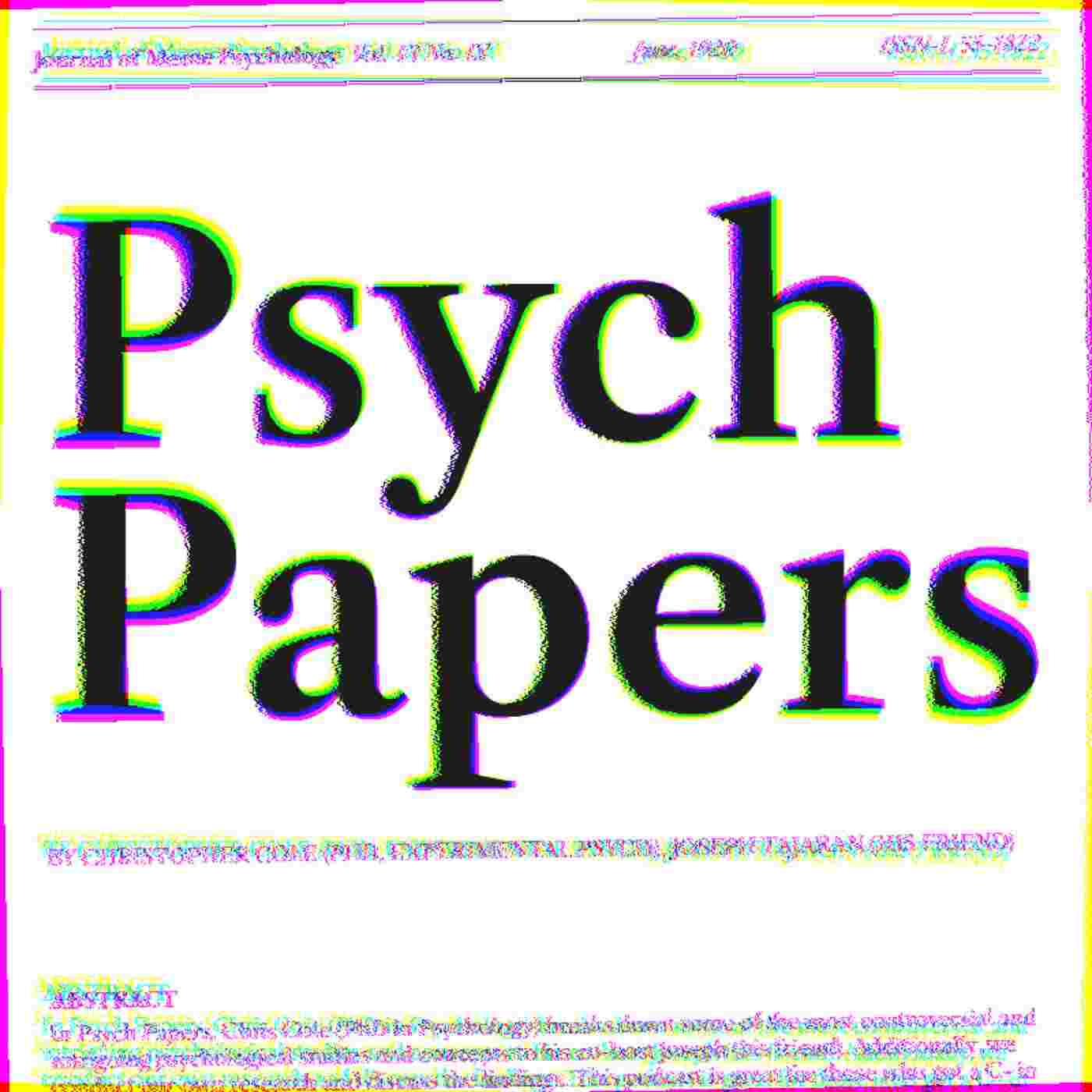
In Psych Papers, Chris Cole (PhD in Psychology) breaks down some of the most controversial and intriguing psychological studies and concepts to his co-host Joseph (his friend). Additionally, we conduct our own research and discuss the findings. This podcast is great for those who got a C- in Psych 101.
Bad Content is composed of Chris and Joseph. Check out the video version of the podcast on YouTube: https://www.youtube.com/@psychpapers
In Psych Papers, Chris Cole (PhD in Psychology) breaks down some of the most controversial and intriguing psychological studies and concepts to his co-host Joseph (his friend). Additionally, we conduct our own research and discuss the findings. This podcast is great for those who got a C- in Psych 101.
Bad Content is composed of Chris and Joseph. Check out the video version of the podcast on YouTube: https://www.youtube.com/@psychpapers

Beauty = Order and Complexity. Think of the architecture of your favorite museum versus the architecture of a mundane apartment building. Why is one beautiful and the other isn’t? For something to be beautiful, it must have the right balance of order and complexity.
Order refers to the structured, organized, and predictable aspects of an object or environment. In architecture, order can be seen in the symmetry, balance, and clear organization of elements within a building. It provides a sense of coherence and stability, making it easier for our brains to process and understand what we see.
Complexity refers to the intricate, detailed, and varied aspects of an object or environment. In architecture, complexity is found in the richness of details, variety of forms, and the depth of visual interest in a building. It engages our attention and curiosity, providing new patterns and details to discover upon closer inspection.
The idea is that beauty arises from the right balance between order and complexity. Too much order can lead to monotony and boredom, while too much complexity can result in chaos and confusion. A beautiful object or environment, such as the Palace of Versailles, achieves a harmonious balance where there is enough order to provide stability and enough complexity to maintain interest and engagement.
While this view focuses on architectural beauty, it can also be applied to other domains such as art and music.
This view relates to the Prospect and Refuge Theory (Appleton, 1975) that states humans have an innate preference for environments that offer both opportunities for exploration and observation (prospect) and places for shelter and safety (refuge).
Article: https://www.theschooloflife.com/article/the-secret-of-beauty-order-and-complexity/
Check out the video version of this episode on YouTube.